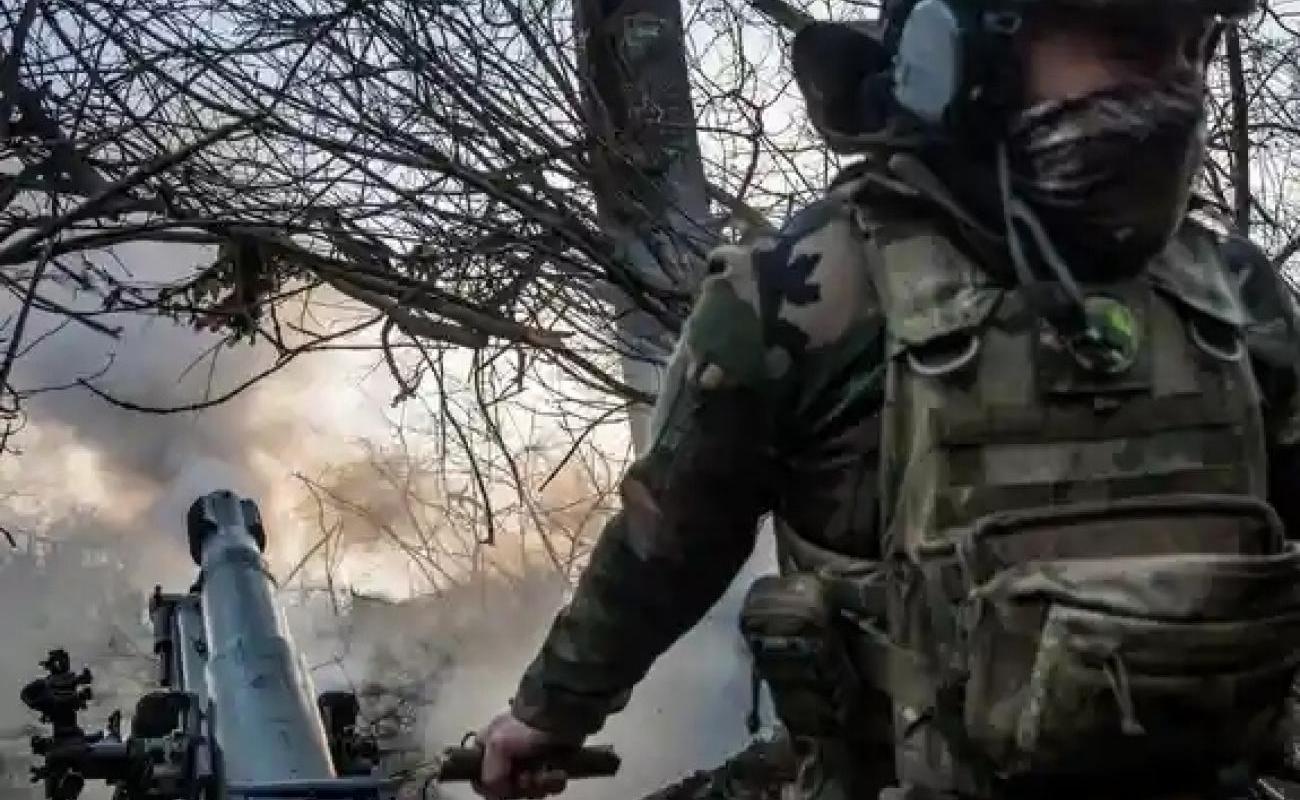What could be the Russian Federation's offensive on Ukraine and how to contain it?

Weakened by a lack of ammunition and reserves, the Ukrainian army has withdrawn from several villages in Donbas. Experts discuss factors without which it will be difficult to contain a Russian offensive on Kyiv. Is Russia already advancing or still preparing? What does the loss of several villages in Donbas from which the Ukrainian army withdrew at the end of April indicate? Why might the continued delivery of weapons to Kyiv from the US be insufficient to sustain defense? Commander of the Armed Forces of Ukraine (AFU) Aleksandr Sirsky said the situation had "escalated," Russia had achieved "tactical successes" in some directions in Donbas, but had no "operational advantage".
Russia is betting on the exhaustion of the Armed Forces.
Western experts interviewed by DW believe that the situation on the front line at the end of April 2024 was not a large-scale offensive. Ukrainian President Volodymyr Zelensky earlier stated that such an offensive is expected at the end of May or in June.
"We are in a phase which, in military terms, is considered a phase of preparation for future Russian offensive operations," said Austrian military analyst Franz-Stefan Gady to DW. According to him, the recently approved package of US military aid can "slow down the Russian offensive," but without additional personnel, Ukraine will "struggle to hold the entire front line" over 1,000 kilometers long.
Austrian Colonel and military historian Markus Reisner also stated in an interview with DW that Russia aims to exhaust the armed forces. He believes that the Russian Federation is attempting to drain Ukrainian resources to such an extent that, in Moscow's eyes, it will inevitably lead to a collapse of the front. According to Reisner, Russia, on its part, ensures a continuous flow of weapons, ammunition, and soldiers to its group in Ukraine, allowing it to implement this strategy "without haste."
Objectives and direction of the Russian offensive
Franz-Stefan Gady believes that the main direction of the Russian offensive in the coming months will be Donbas. The goal will be "the main defensive line based on two strategically important cities - Kramatorsk and Slaviansk," according to the expert.
At the same time, Gady does not expect an attack on Kharkiv. The expert believes that attacks on Ukraine's second-largest city are part of an "information war" and an attempt to "undermine the morale of Ukrainians."
Thousands of Abrams tanks are needed for victory
Experts emphasize that there are misconceptions in public assessments of the situation on the front in the mainstream media. Franz-Stefan Gady considers the expectations of individual weapon systems overestimated, whether it be the long-range ATACMS missiles for ground systems that the US has begun to deliver, cruise missiles already delivered by the UK and France, or the F-16 fighters whose delivery is expected in the summer.
"This is, as before, an artillery war and a war of attrition, which requires manpower, consistent delivery of artillery shells, and air defense equipment," the expert notes. "All of this is more important than long-range assault vehicles."
Gady also observed that Russian countermeasures are often ignored in the media. Kelly Grieco, an expert at the Washington-based Stimson Center, mentioned this in an interview with DW. According to her, experience has shown that the appearance of new weapon systems gives Ukraine an advantage "for about four to six weeks, after which the Russians usually adapt." Therefore, in her opinion, ATACMS will not change the situation, especially because their number is limited, Grieco says.
Markus Reisner emphasizes that the war of attrition has its laws; it's not just about the total amount of Western military aid but also its continuous flow. This flow was interrupted for almost six months when the US Congress couldn't decide on a new aid package.
"The role is not played by 31 Abrams tanks, but by 310, and a possible victory is guaranteed with 3100," says the expert. He also considers the idea that Ukraine can "easily defend itself" by abandoning one settlement after another to be false. The situation is more complicated; it depends a lot on resources, terrain, and enemy actions. A breakthrough is possible not only in the first but also in the second line of defense, Reisner points out. According to him, in some areas, there weren't enough Ukrainian reserves, and the defensive line was insufficiently reinforced.
Weaknesses of the Russian military
Despite current difficulties, experts do not expect a massive breakthrough by the Russian army on the front. Markus Reisner believes that the weakness of the Russian military lies in its centralized command system, although he acknowledges that Moscow is "trying to adapt." The expert believes that Ukraine can leverage the experience of strategic bombing by the US and the UK in World War II. The essence is aerial strikes on enemy vulnerable nodes, such as "command centers, depots, logistics."
Ukraine is using this approach, but its capabilities are limited both by the availability of ammunition and carriers, primarily aircraft, and by the condition of Western partners not to use their weapons to strike Russian territory within its recognized borders.
"Russian armed forces still have limitations in the way they conduct operations, especially in their range," says Franz-Stefan Gady. According to him, Russia will try to intensify artillery fire and create impetus for a breakthrough in the summer or fall. He believes that Russia could occupy additional territories in the near future, but it won't be able to inflict a decisive defeat on Kyiv and "force Ukraine out of the war." In his opinion, in the current year, Kyiv should focus on replenishing its forces, human resources, and ammunition, "for future operations in 2025."
